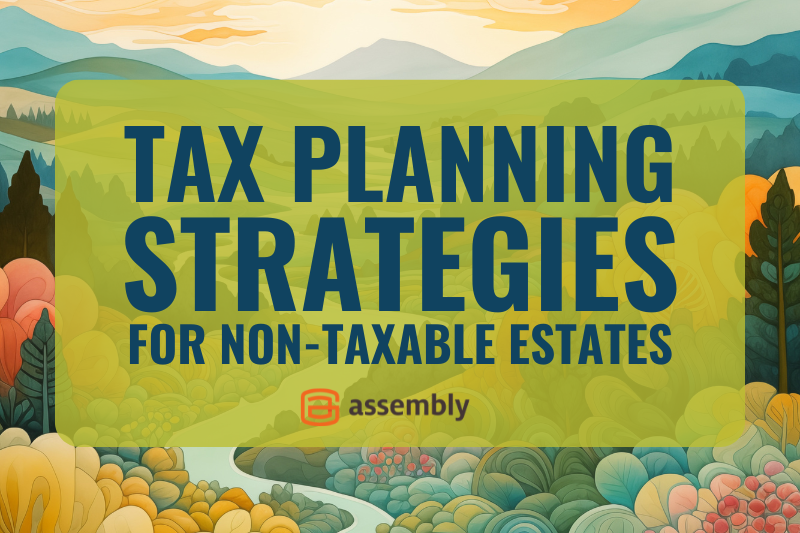Estate Planning: How to Avoid Common Pitfalls and Costly Problems
Many Americans don’t have an estate plan because they don't like to think about a time when they will no longer be around. It's understandable, but...
3 min read
 Doug Hutchinson
:
Jun 14, 2024 6:15:00 AM
Doug Hutchinson
:
Jun 14, 2024 6:15:00 AM

The “Godfather of Soul,” James Brown, who passed away in 2006, had a noble vision for how he wanted his assets distributed. His will included $2 million for his grandchildren’s schooling and millions of dollars in educational funding for underprivileged children in Georgia and South Carolina.
Sadly, it took fifteen years for his final wishes to be fulfilled — and they were almost ignored entirely.
James Brown carefully crafted an estate plan to benefit his community and select family members, but if not for the state Supreme Court, his final wishes would have been disregarded. According to reporting from USA Today:
“A 2009 settlement plan would have given nearly half of Brown’s estate to a charitable trust, a quarter to [a former partner who claimed to be his wife] and the rest to be split among his adult children. The state Supreme Court overturned that deal in 2013, writing that then-Attorney General Henry McMaster — now the state’s governor — hadn’t followed Brown’s expressed wishes for most of his money to go to charity.”
It leaves one to wonder, what if Mr. Brown had gathered his entire family together, explicitly stated his wishes, and said they were not to be challenged? Perhaps Mr. Brown did all of these things and no one in the family listened. But, based on the nature of the lawsuits filed, it appears family members were surprised – and unhappy – with Mr. Brown’s estate plan.
More than a dozen lawsuits were filed. One involved nine of Mr. Brown’s children and grandchildren suing the estate’s administrator.
There is one assumption one can safely make about the situation. Mr. Brown wouldn’t have wanted it this way.
.jpg?width=590&height=787&name=James_Brown_(1977).jpg)
Photo: Koen Suyk via Wikimedia Commons
While we cannot know all the details, Mr. Brown’s situation offers a critical lesson (and reminder) about estate planning: even a well-crafted will and estate plan can run into problems if the family is not fully aware of your intentions.
Understandably, talking to family members about your estate plan can be challenging for a variety of reasons:
The uncomfortable nature of the conversation leads people to delay or outright avoid talking to loved ones. But as Mr. Brown’s and so many other cases demonstrate, failing to have thorough, candid and frequent discussions with family members about your estate plan can ultimately create a greater cost in the long-run.
So, when is the right time to have the financial and estate planning conversation?
Generally speaking, the answer is early and often. With adult children, it’s important to have conversations about the future, as difficult as they may be. In some cases, setting the expectation for how the estate will be settled early gives family members the ability and time needed to plan accordingly.
The key, once again, is having the conversation about finances early and often.
Having weighty and important conversations about family finances doesn’t come naturally to everyone, and that’s understandable. That’s where having a trusted financial advisor can be a big asset — someone you can bring in to mediate sensitive conversations and explain the reasoning and technicalities behind the planning. An advisor will also likely be better equipped to deal with disputes or disagreements with the plan, since they will understand the intricacies of why a plan is set up a certain way.
An advisor can also help you define the legacy you’d like to leave. Like James Brown, you can benefit your community through charitable giving as part of your estate, or while you’re still alive.
A financial advisor can also give you frank advice about:
Once you have clarity around your goals and legacy, it’s time to open a dialogue. After that, it’s important to continue the conversation — to reinforce your wishes or if things change. The more your family can openly and candidly discuss their finances, the less chance there will be a big misunderstanding and legal dispute later.
If reading this article made you realize you would like assistance initiating a conversation or defining your goals, we hope you’ll contact Assembly Wealth. Our experienced Wealth Managers have helped families in The Bay Area and throughout the U.S. protect their assets and leave a meaningful legacy.
Related Reading:
Are You Prepared for the 8 Most Common Financial Challenges?
Retirement Planning: Different Strategies for Different Goals
How to Create a Wealth of Life Plan (free ebook)
Fill out the form to be notified about new articles.

Many Americans don’t have an estate plan because they don't like to think about a time when they will no longer be around. It's understandable, but...

If you have aging loved ones, filling out an advance medical directive and researching care homes are probably not high on your to-do list (or...

Through the end of 2025, only estates worth more than $13.61 million are subject to federal estate tax. Under the current law, only a tiny percentage...